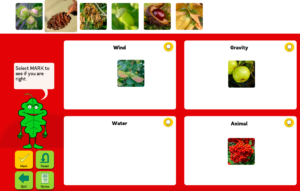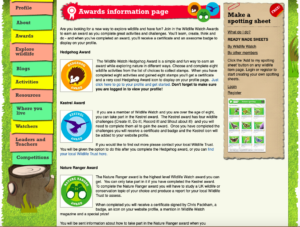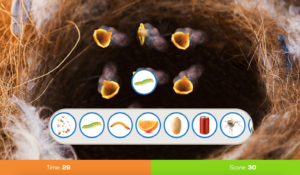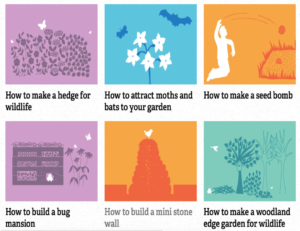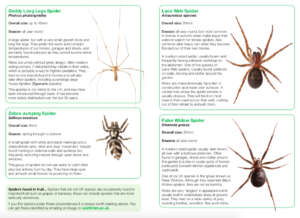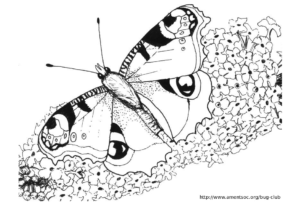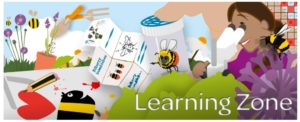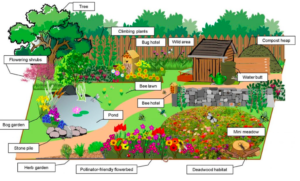Keeping yourself wild during lockdown
Hello there. It’s Warden Henry here.
I’m writing to you from my isolated state with a serious case of the heathland withdrawals!
I thought that, as many of you will be finding yourselves in a similar situation in the coming weeks, I would provide you with some online resources that I’ve found particularly helpful in keeping up my connection with the natural world.
Woodland Trust – Tree Tools for Schools
The Woodland Trust site is a great place to scrub up on your tree knowledge. Tree Tools for Schools is a learning hub that offers an array of tree-themed games, outdoor activities and crafts to keep the kids entertained.
Worried about home schooling the kids…? Look no further!
Tree Tools for Schools offers curriculum specific activities for key stage 1 and 2 across English, Maths, Science, Art and Geography. Keeping learning fresh for the kids and giving you the chance to have some fun and even learn something new yourself. I certainly did!
Try making leaf animals, take a woodland wildlife quiz and, if these don’t tickle your fancy, there is a great article on the main Woodland Trust web site called “10 nature activities for kids if you’re self-isolating at home” which is sure to inspire!
Wildlife Watch
Wildlife watch is a great site for the junior members of the Wildlife Trust and is packed with loads of interesting information, fun-filled activities and competitions.
Awards are offered to members who complete wildlife activities and include making a bird box, bat box, hedgehog home and even your own binoculars to check up on who or what is using your wild and wonderful creations. When you’ve completed enough activities you receive a certificate and a cool badge for your profile. You can progress from the Hedgehog Award to the Kestrel Award and finally to the Nature Ranger Award where, upon completion, you receive a certificate signed by Chris Packham himself, as well as a mention in the Wildlife Watch magazine. As if that isn’t special enough for you, you also win a special prize!
Through your profile, you can gain “Nature Stars” by simply spotting animals when you’re out and about. These Nature Stars can be used to “buy” nature cards that you can put in to your very own online nature reserve! Say you spotted a hovering hobby, you would earn 70 nature stars that could be used to add a hedgehog (30 stars) and a smooth newt (40 stars) to your nature reserve. The more nature stars you collect, the higher the status on your profile; progressing from “newt to this” through “cunning fox” to “smart shark” and more.
The RSPB site is a great resource, whether you want to work out what the weird and wonderful new regular to your bird feeder is or simply feel your family needs to reconcile your relationship with nature.
There are a number of great wildlife activities focused on helping and experiencing nature, while giving you the opportunity to win bronze, silver and gold awards. On the rainy days that are sure to come, keep the kids learning fresh with some of the great games on the website like “Hungry Birds”, “Feather Frenzy” and “Food Chain Challenge”.
Wildlife Trust – Wildlife Gardening
The Wildlife Trust has some great online resources with a focus on improving your garden for wildlife. There are an estimated 24 million gardens in the UK and the Wildlife Trust needs your help to turn them into wonderful wild islands to act as an oasis for our wildlife when travelling between nature reserves.
They provide free to download guides on subjects like wildlife gardening, as well as more specific subjects like helping hedgehogs or creating a pond. There are also a range of different activities to do in the garden with your kids or family.
One of the great benefits of being stuck at home is that there is no excuse to finally getting round to creating the pond that you’ve always wanted or starting your own compost heap. Let’s make the most of the time we have at home and do something great for nature.
OPAL
OPAL is a great organisation that gives everyone an opportunity to get hands on with nature in their citizen science surveys across the UK.
Their website is a goldmine of identification guides for all manner of things, from hedgerow plants to house spiders. The next spider that comes a-crawling can become less of an exercise in evacuation and more of a great learning opportunity, with the chance for the kids to get up close and personal with some of our most interesting invertebrates!
The site also contains great education material with curriculum-linked lesson plans including their Key Stage 3 Classification Pack, which contains 3 lesson plans full of surveys and quizzes.
The Bug Club
The Amateur Entomologists’ Society website caters for your every bug need.
Struggling to work out what on earth the strange bug you’ve discovered in your garden minibeast hunt is? Then look no further than the handy key and numerous fact sheets to find out what you are dealing with. If the preliminary search leaves you at a loose end the members of the Amateur Entomologist’ Society’s experts are eager to offer a helping hand.
The website offers a whole host of different handbooks and leaflets including “Habitat conservation for insects”, “Guide to moth traps” and “How do insects fold and unfold their wings”.
The Bug Club is a great place for junior insect enthusiasts to broaden their bug brains, where you can find fun fact files on all things buggy. You can learn about the complicated relationship between us humans and our invertebrate friends and what we can do to conserve what is an integral part of the ecosystem. Or, if that sounds a bit much for you, then maybe visit the fun and games section, where you can enjoy some bug colouring sheets, insect origami and online games to test your knowledge.
Bumblebee Conservation – Learning Zone
The Bumblebee Conservation Trust website is a one stop shop for bumblebee information and has a great learning zone that is conveniently split up into different age categories.
- Discover Bumblebees offers fun activities aimed at 4-6 year olds. It gives them the opportunity to experience nature from a young age, learning through doing and fostering a deeper connection to the natural world.
- Explore Nature is geared up for ages 7-10. It has some really interesting and engaging information sheets with activities and games to keep the home schooling fun and fresh. Some of the key topics include where do bumblebees nest, how do they see and the differences between honeybees and their bumble-y cousins.
The site also contains great key stage 3 lesson plans on key topics like plants and ecosystems, inheritance, variation and survival and electricity and magnetism. Each topic contains a number of activities with teachers’ notes to aid in your home schooling efforts.
There’s always a buzz in the Learning Zone!
Bug Life – Children’s Activities
Buglife is another wonderfully buggy resource with in-depth fact files on a huge number of the bugs across the UK, from heath potter wasps to water bears. The website has a great activity area with fun things to do in rain or shine, like building a bee hotel, building your own narrow headed ant and making a mini meadow. There is also a pdf copy of the wonderful short story for children “I’m Amelia Rate and no one else” by Simon Bell, which is a tale of the importance of bugs with a couple of lessons built-in for kids and adults alike.
Well, I hope you have found these recommendations useful!
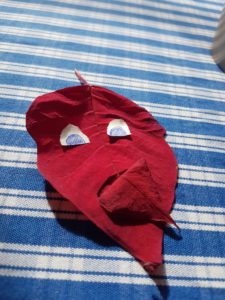
My very own leaf art inspired by the Woodland Trust! Why don’t you have a go and let us know how you get on?
I have certainly been inspired to get out in the garden and give my local wildlife a helping hand.
Keep an eye out on our social media accounts for some of the inventive ways us wardens are staying wild at home. My bird box should be making an appearance as soon as I’ve added a few finishing touches.
We would love any photos or short clips of your efforts so tag us on Facebook (/thamesbasinheathspartnership), Twitter and Instagram (both @tbhpartnership) or click the social media links below.
Now get out there and start to re-wild your quarantine!
Warden Henry

